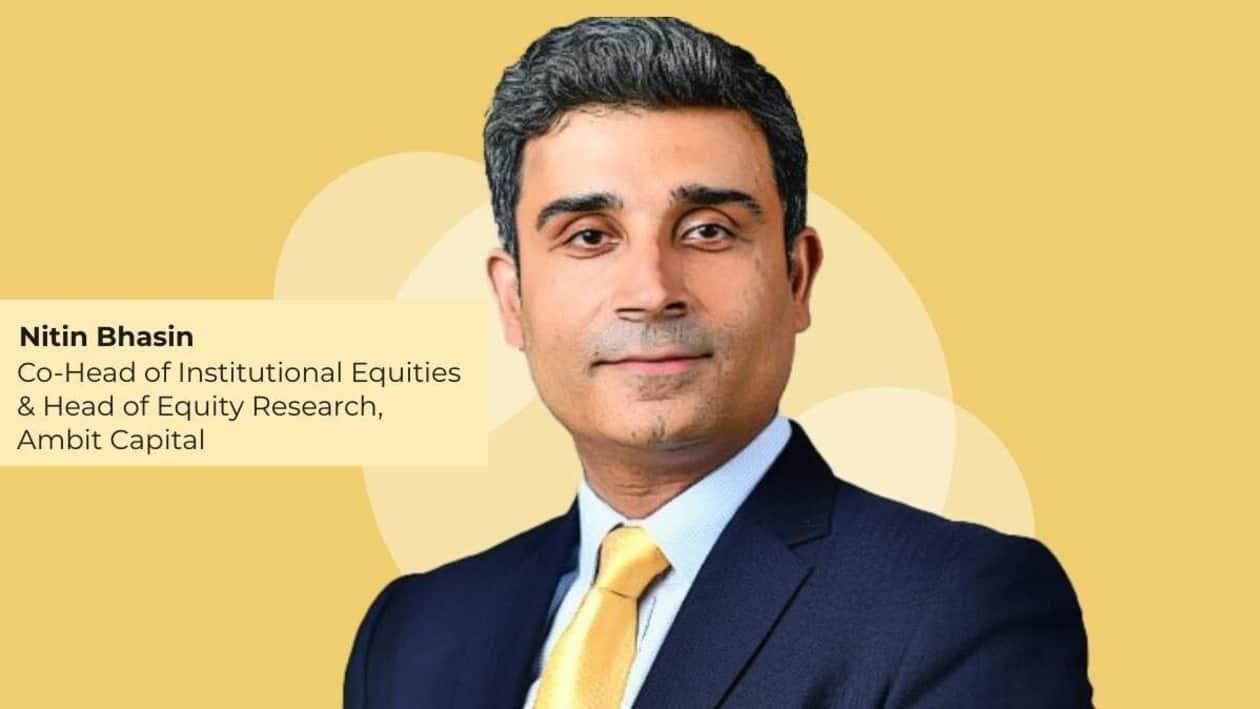Nitin Bhasin, Co-Head, Ambit Institutional Equities and Head of Research at Ambit Capital, expects the market to trade with a negative bias with the emergence of fault lines both, on the domestic front and globally. He says value stocks are likely to outperform growth stocks this year.
In an interview with MintGenie, he said that in the upcoming Budget, the government is likely to give some relief to the middle class on taxation front.
Edited Excerpts:
Do you believe there will be relief for investors in this upcoming Budget?
The government is likely to give some relief to the middle class by increasing the minimum slab of taxation as inflation has eaten into the earnings in the last two years. Also, capital gains tax, which is perceived to be complex, is likely to be simplified.
What about consumers? Which sectors/products, according to you, can see a decline in prices (due to GST relaxation or govt. subsidy)?
We do not expect the government to decrease GST on items in the near future. However, if the crude prices fall from current levels, there is scope of a reduction in union excise duty on petroleum products giving relief to consumers in an election year. The government's total subsidy expenditure is likely to come down in FY24 as extraordinary circumstances have pushed subsidy bill to record levels in the last three years.
How do you expect the market to perform in the near term (till March-end)? Will it be muted, witness recovery, or give negative returns?
We expect the markets to trade with a negative bias, with the emergence of fault lines both, on the domestic front and globally. Net SIP flow numbers have reduced significantly over the last 2 months as redemptions increased. With rising deposit rates and declining market returns, the domestic flows were expected to recede in line with historical trends, and the same has manifested. Similarly, China opening trade doesn’t mean “Short India”, but can likely result in moderation of FII flows. The ECB will also begin contracting their balance sheet starting in March, impacting global liquidity. This should weigh down on equity returns, and we expect the market to deliver negative returns in 1st quarter in line with historical trends.
Do you expect midcaps and smallcaps to continue underperforming in 2023?
Yes, we expect a continuation of small and midcap underperformance in 2023… The bulk of the trading is still happening in small and midcaps which portends caution. And, lastly midcaps ROIC-WACC spreads are at a peak which is likely to mean a revert and as such EV/IC multiples are likely to contract as well. The midcaps and smallcaps are not yet cheap, especially midcaps. And with receding flows, we expect a continuation of underperformance.
What trends should investors focus on this year?
Value would continue to outperform growth… Polarization has made a comeback and will impact investors in CY23. The stock selection would become more important this year, as the rally is narrow amidst receding flows.
Where do you see Nifty by FY23-end? One piece of advice for investors starting their journey in 2023.
Nifty is likely to trade with negative bias in 4QFY23. The fault lines have emerged. Both domestic and global flows are receding! Investors have not made money in MFs from a 1-yr perspective. The opportunity cost of investing in equities has also increased with deposit rates moving up. Earnings ex-BFSI have not been as robust as BFSI space. Valuations are not cheap either. We advise investors to keep on buying on dips and not expect double-digit returns from markets this year. Lastly, investors should avoid midcaps and smallcaps with high earnings growth estimates, especially in the consumption sectors.
Can you explain what are ZOD stocks? What factors should one look out for before investing in them?
Zone of Darkness (ZOD) companies are the companies with relatively weaker accounting quality versus the entire BSE500 universe (ex-BFSI). We use four broad buckets to assign accounting quality ranks to companies (ex-BFSI) 1) Profit and loss misstatement checks 2) Balance sheet misstatement checks, 3) Pilferage checks 4) Audit quality checks. These checks essentially capture issues around cash conversions, working capital manipulation or mismanagement, cash mismanagement, and pilferage through capex/acquisitions/miscellaneous expense/related party advances. Using a ranking methodology, we classify the companies into three Zones – Zone of Safety (good accounting quality ones), Zone of Pain (relatively weak accounting quality ones) and Zone of Darkness (relatively weakest accounting quality ones)
One should avoid investing in Zone of Darkness (ZOD) companies, and if an investor has to, then it should be extremely selective. A decade of back-testing suggests that accounting quality has a bearing on the investment returns i.e. Zone of Darkness (ZOD) companies underperform the broader market. The classic example being CY17 where the weak accounting small/mid-caps (ZOD) rallied; however, their weak accounting quality eventually showed up, and these stocks witnessed a significant downward revision of their share prices in CY18.
Do you think the valuations of these stocks are very high and one should stay away?
ZOD stocks have outperformed by 3 percent/11 percent vs. the NSE100/BSE500 (ex-BFSI) in 2021. Since Dec-21 till now, a median ZOD stock fell only 4 percent vs NSE100/BSE500 (ex-BFSI) i.e. they have not corrected much after their massive rally in CY21. Perhaps investors are hopeful many accounting risks won’t show up. Several ZOD companies across sectors are at par valuations (both relative and historical) with good accounting quality companies (Zone of Safety – ZOS). For instance, in 19 out of 28 sectors, we see >50 percent of ZOD companies within that sector are trading at expensive valuations on a TTM PE basis.
